My Dog Has Red, Itchy Skin & Bumps – What’s the problem?

There are numerous reasons why your pooch has red, itchy skin. Allergies, parasites, and various microbes can be the source of the discomfort resulting in inflammation and hair loss. We’ve given you a very general overview of some of the causes of your dog’s itching and provided you with some possible solutions in the paragraphs below.
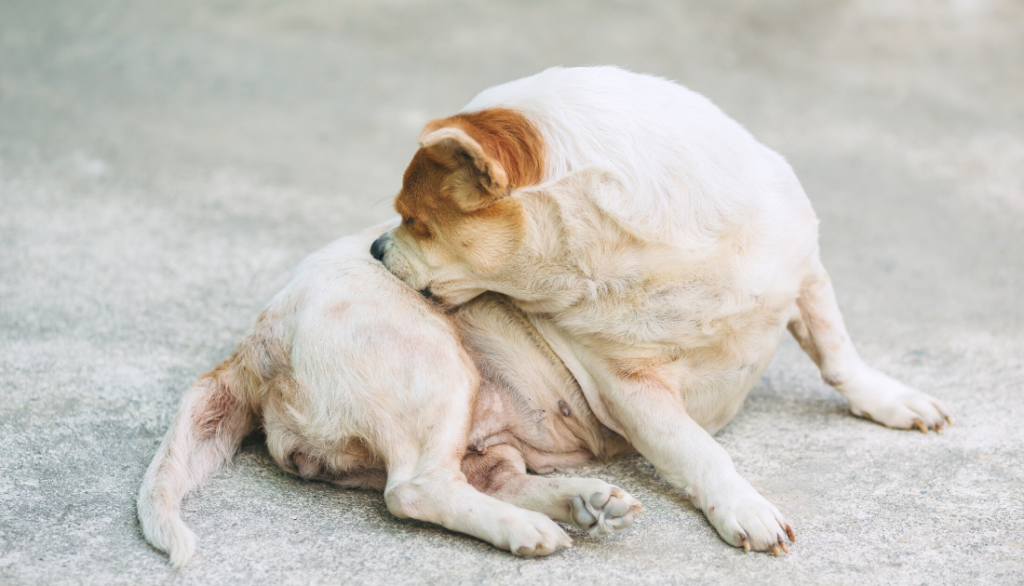
1. Allergies
Veterinarians report that skin allergies are the Number One reason they see their doggy patients. The itching and the scratching associated with allergies often leads to hair loss and red, inflamed skin.
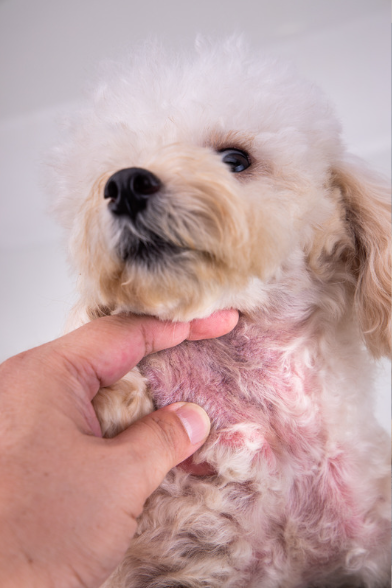
Some dogs scratch and bite at themselves so much they cause sores or open wounds on their bodies that can become infected.
Your sensitive dog can be allergic to just about anything — grass and tree pollens, dust in your home, even her own food. Consulting with your veterinarian can help you determine the cause for your dog’s allergies, but it is up to you to help her overcome her symptoms and ease the discomfort she feels daily.
Regardless of what is causing her reactions, putting your dog on an all-natural, grain-free diet made with alternative protein has been known to alleviate the itchiness of some dogs. We Feed Raw is an excellent choice as it has a duck and venison recipe and feeding your dog a raw diet may help alleviate some skin issues.
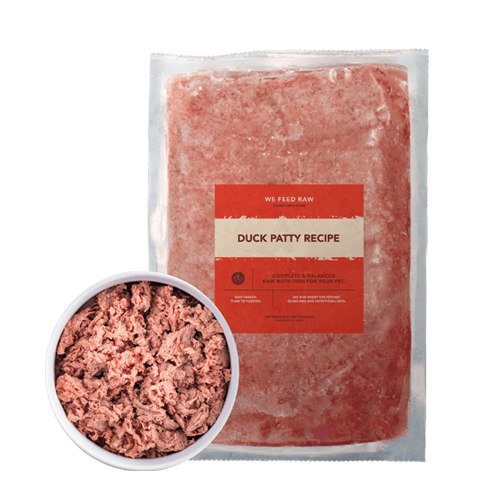
You may also want to try bathing your pooch in an all natural oatmeal-based shampoo specifically formulated for dogs with allergies. The colloidal oatmeal in the shampoo contains natural moisturizers and anti-inflammatory properties that can relieve the itching associated with allergies and bug bites. If your pup is focused on just one area of her body, using a targeted anti-itch spray can instantly stop the redness and discomfort she’s feeling on her itchy spots.
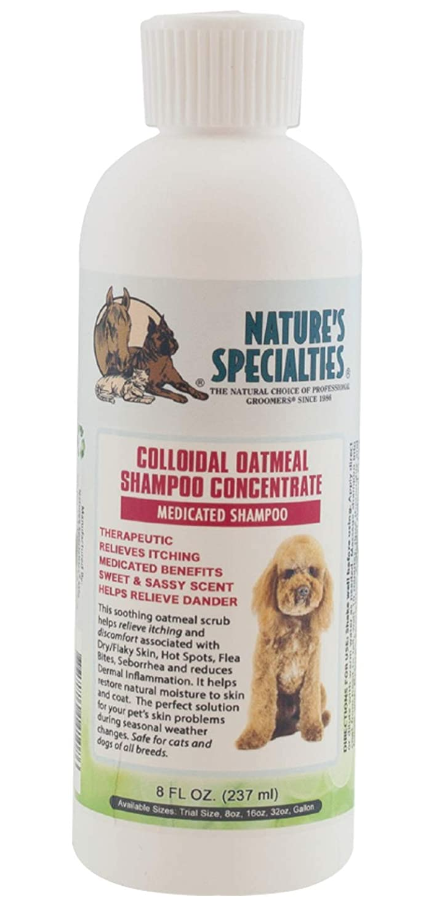
2. Mange
If you’re the new pet parent of a rescue dog — either puppy or fully mature — your new pet may come home with you carrying a case of mange. There are normally 2 types of mange mites that infect the neglected, malnourished pups often sitting in your local shelter.
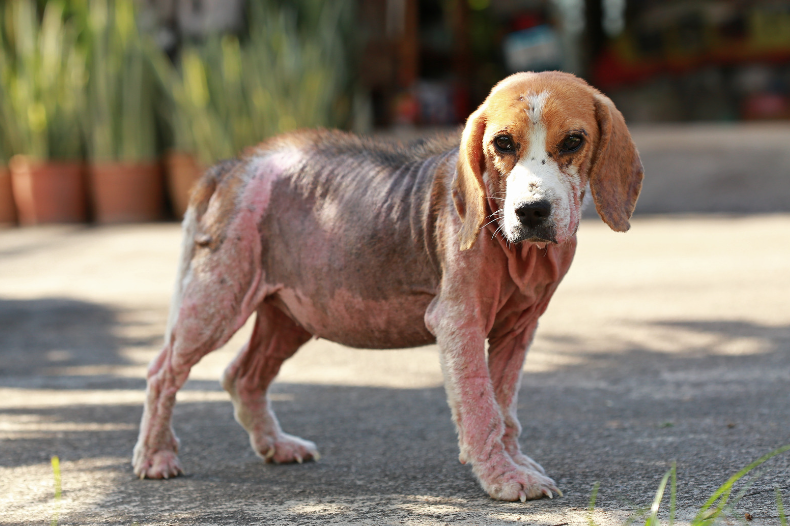
- Demodex mites are the non-contagious kind. These microscopic bugs live on the bodies of all healthy dogs, getting their nourishment from dead skin and hair cells. It’s only when the animal becomes immune-compromised through illness or malnourishment and the body isn’t able to fend off these little buggers, that they over-multiply and become intolerable. You’ll see dogs with hair loss and red, inflamed, often infected, skin and its because the demodex has gotten out of control.
- Sarcoptes mites are a much more serious infestation than demodex because these mites are contagious to humans. Dogs with sarcoptes show the same hair loss, and inflamed skin you see in demodex. However, sarcoptes is much more malicious and uncomfortable for the dog and infected dogs often have running, open sores and infected, cracked skin from the severe itching that occurs with this disease.
Only your veterinarian, examining a skin scraping under a microscope, can help you determine which type of mite is infecting your dog. Medicated baths and dips given over a period of several weeks are typically prescribed by vets, and your pup may need antibiotics if any skin infection is noted.
Once you get your pup past all the mange nastiness, using an oatmeal-based shampoo and anti-itch spray can keep her from re-injuring her skin.
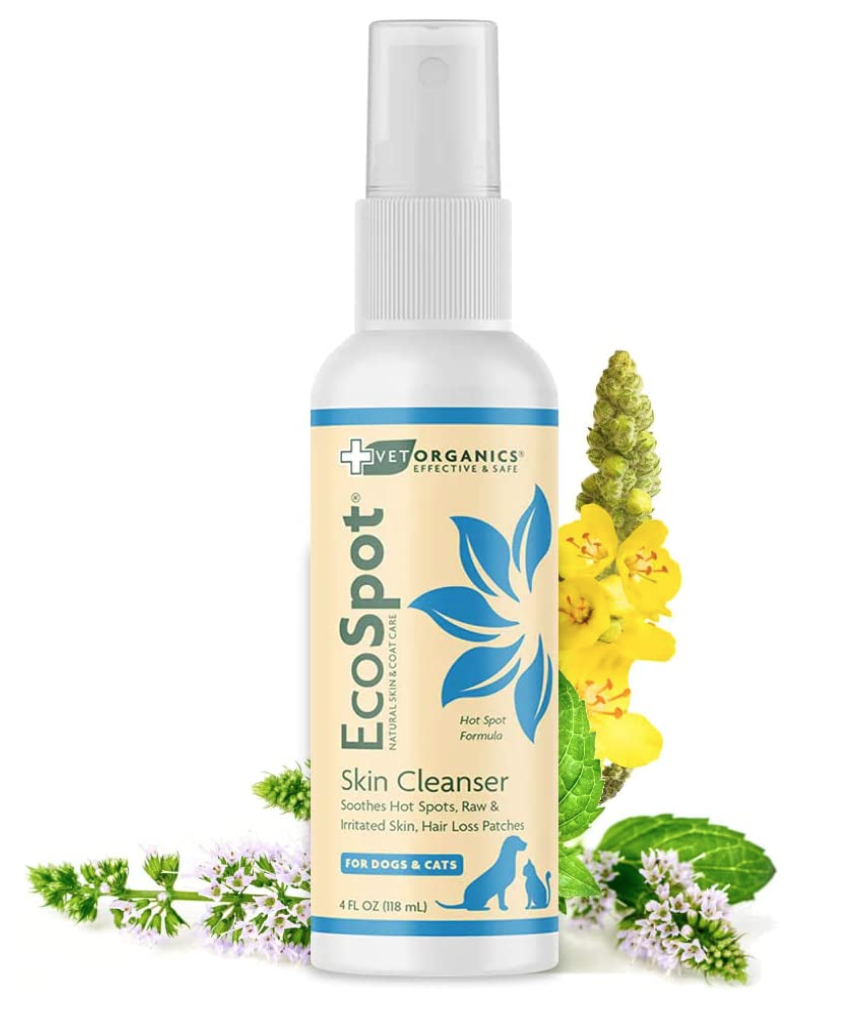
We also recommend using CBD Oil. You’ve probably heard about it, it’s absolutely exploding in popularity among dog owners. It helps to reduce inflammation and it reduces a dog’s anxiety. You can try an reputable brand like Relievet, which has lots of option in terms of flavors and sizing.
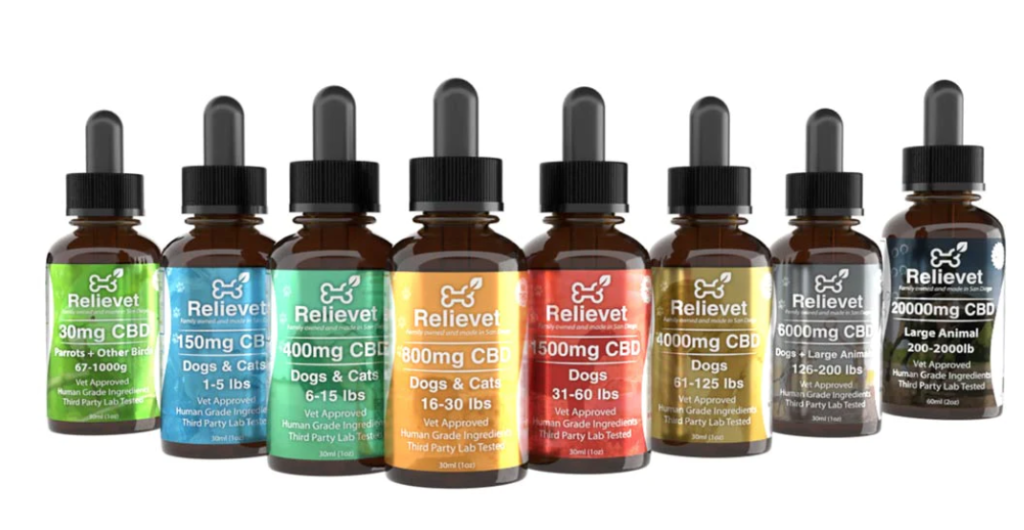
3. Fleas
I hate fleas!…and I know I’m not the only pet parent out there with those same feelings. Those pesky little parasites live on your dog’s skin, dine on her blood, and will, if you’re not proactive, move into your home and feast on every living creature there — including you.
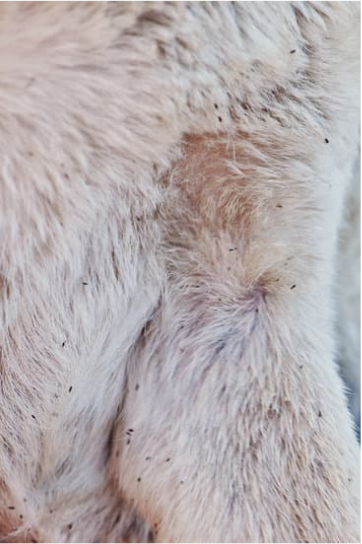
You can usually spot fleas on your dog if she’s constantly scratching or biting at her skin and you can see tiny, black moving specks under her hair coat. Some dogs are so allergic to the saliva in the flea bites that their skin becomes red and inflamed and they begin to lose their hair. This condition is called flea allergy dermatitis.
Killing the fleas with an insect-repellent shampoo and then using monthly topical flea preventive is really the only way to guarantee that the fleas — and the eggs — are dead.
Applying an all-natural flea protection spray in between baths and monthly medications helps to ensure that those itchy little jumpers are gone for good. You’ll want to look for a product that contains no pesticides or poisons so that if your pet licks it off, she is perfectly safe.
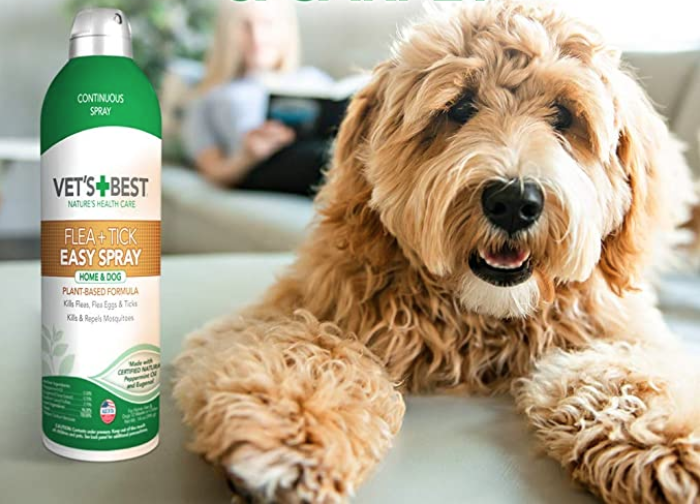
4. Skin infections
Skin infections, also called skin dermatitis, are usually the result of a dog’s licking and scratching from one or more of the reasons we’ve already discussed. Caused by bacteria, yeast, or fungus, an untreated skin infection can gradually become so serious that your dog’s health can be dangerously compromised. That’s why we always tell you that if you notice any open sores, scaly patches, or bloody areas on your dog’s skin, you need to see your veterinarian.
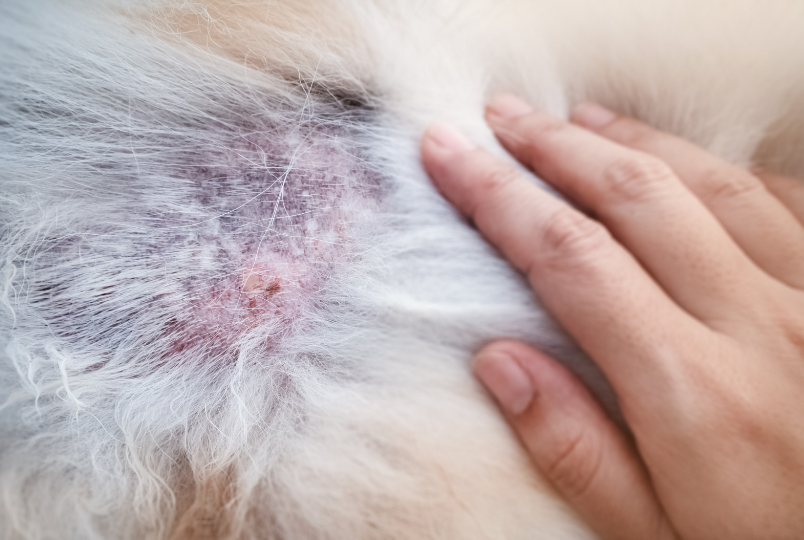
Your vet can run blood tests, skin scrapings, and fungal cultures to determine the cause of the infection and recommend medications to cure it. Don’t take a chance on your pup’s health by attempting to self-diagnose whenever there is a chance of disease.
After all, a healthy and itch-free dog is a happy dog…and what more could any pet parent want?
Also, you might find this article helpful to see how Just brushing your dog’s coat can help alleviate itchy skin.









